A trade union is an association of workers forming a legal unit or legal personhood, usually called a "bargaining unit", which acts as bargaining agent and legal representative for a unit of employees in all matters of law or right arising from or in the administration of a collective agreement. Labour unions typically fund the formal organization, head office, and legal team functions of the labour union through regular fees or union dues. The delegate staff of the labour union representation in the workforce are made up of workplace volunteers who are appointed by members in democratic elections.

Sidney James Webb, 1st Baron Passfield, was a British socialist, economist, reformer and a co-founder of the London School of Economics. He was one of the early members of the Fabian Society in 1884, who like George Bernard Shaw joined three months after its inception. Along with his wife Beatrice Webb, Annie Besant, Graham Wallas, Edward R. Pease, Hubert Bland, and Sydney Olivier, Shaw and Webb turned the Fabian Society into the pre-eminent political-intellectual society in Edwardian England. He wrote the original, pro-nationalisation Clause IV for the British Labour Party.
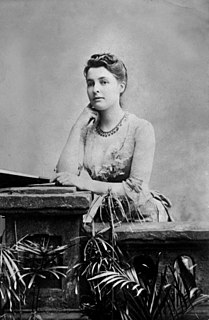
Martha Beatrice Webb, Baroness Passfield,, was an English sociologist, economist, socialist, labour historian and social reformer. It was Webb who coined the term collective bargaining. She was among the founders of the London School of Economics and played a crucial role in forming the Fabian Society.

The Tolpuddle Martyrs were six agricultural labourers from the village of Tolpuddle in Dorset, England, who, in 1834, were convicted of swearing a secret oath as members of the Friendly Society of Agricultural Labourers. They were arrested on a legal technicality during a labour dispute against cutting wages before being convicted in R v Lovelass and Others and sentenced to penal transportation to Australia. They were pardoned in 1836 after mass protests by sympathisers and support from Lord John Russell and returned to England between 1837 and 1839.
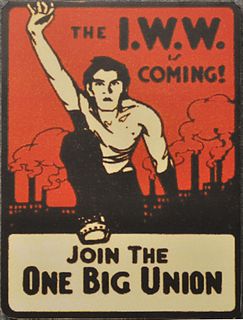
The One Big Union was an idea in the late 19th and early 20th centuries amongst trade unionists to unite the interests of workers and offer solutions to all labour problems.
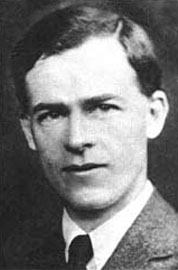
George Douglas Howard Cole was an English political theorist, economist, writer and historian. As a libertarian socialist, he theorised guild socialism. He belonged to the Fabian Society and was an advocate for the co-operative movement.

Thomas Mann (1856–1941) was an English trade unionist. Largely self-educated, Mann became a successful organiser and a popular public speaker in the labour movement.
The Australian labour movement began in the early 19th century and since the late 19th century has included industrial and political wings. Trade unions in Australia may be organised on the basis of craft unionism, general unionism, or industrial unionism. Almost all unions in Australia are affiliated with the Australian Council of Trade Unions (ACTU), many of which have undergone a significant process of amalgamations, especially in the late 1980s and early 1990s. The leadership and membership of unions hold and have at other times held a wide range of political views, including communist, socialist and right-wing views.
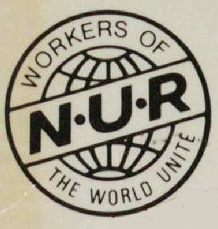
The National Union of Railwaymen was a trade union of railway workers in the United Kingdom. The largest railway workers' union in the country, it was influential in the national trade union movement.
New unionism is a term which has been used twice in the history of the labour movement, both times involving moves to broaden the trade union agenda. Ben Tillett was a prominent leader of the London Dock strike of 1889. He formed the Dock, Wharf, Riverside and General Labourers' Union in 1889, which had support from skilled workers. Its 30,000 members won an advance in wages and working conditions.
The National Association for the Protection of Labour was one of the first attempts at creating a national trade union centre in the United Kingdom. The organization was established in July, 1830 by John Doherty, after an apparently unsuccessful attempt to create a similar national presence with the National Union of Cotton-spinners.
New Model Trade Unions (NMTU) were a variety of Trade Unions prominent in the 1850s and 1860s in the UK. The term was coined by Sidney and Beatrice Webb in their History of Trade Unionism (1894), although later historians have questioned how far New Model Trade Unions represented a 'new wave' of unionism, as portrayed by the Webbs.
The following events related to sociology occurred in the 1910s.
Anarcho-Syndicalism: Theory and Practice. An Introduction to a Subject Which the Spanish War Has Brought into Overwhelming Prominence is a book written by the German anarchist Rudolf Rocker. Its first edition was published by Secker and Warburg, London in 1938 and was translated from Ray E. Chase. Rocker penned this political and philosophical work in 1937, at the behest of Emma Goldman, as an introduction to the ideals fueling the Spanish social revolution and resistance to capitalism and fascism the world over. Within, Rocker offers an introduction to anarchist ideas, a history of the international workers' movement, and an outline of the syndicalist strategies and tactics embraced at the time. The Pluto Press and the newest AK Press editions including a lengthy introduction by Nicolas Walter and a preface by Noam Chomsky.
Industrial Democracy is a book written by British socialist reformers Sidney Webb and Beatrice Webb, concerning the organisation of trade unions and collective bargaining. The book introduced the term industrial democracy to the social sciences, which has since gained a different meaning in modern industrial relations.

Lloyd Jones, born Patrick Lloyd Jones, was an Irish socialist and union activist, advocate of co-operation, journalist and writer.
Industrial democracy is an arrangement which involves workers making decisions, sharing responsibility and authority in the workplace. While in participative management organizational designs workers are listened to and take part in the decision-making process, in organizations employing industrial democracy they also have the final decisive power.
The labour movement or labor movement consists of two main wings, the trade union movement or labor union movement, also called trade unionism or labor unionism on the one hand, and the political labour movement on the other.
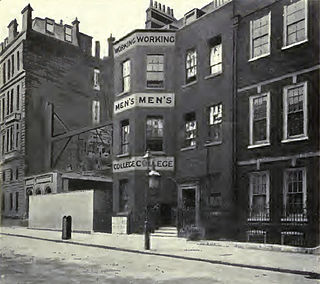
Frank Wallace Galton, sometimes known as Frank Wallis Galton, was an English political writer and journalist who was secretary to Sidney and Beatrice Webb and later to the Fabian Society. In 1929, he was appointed to the Royal Commission on Transport.
The history of trade unions in the United Kingdom covers British trade union organisation, activity, ideas, politics, and impact, from the early 19th century to the present.









